Reinventing the Curriculum to Provide Students with a Meaningful Education
Two colleges turn to project-based learning
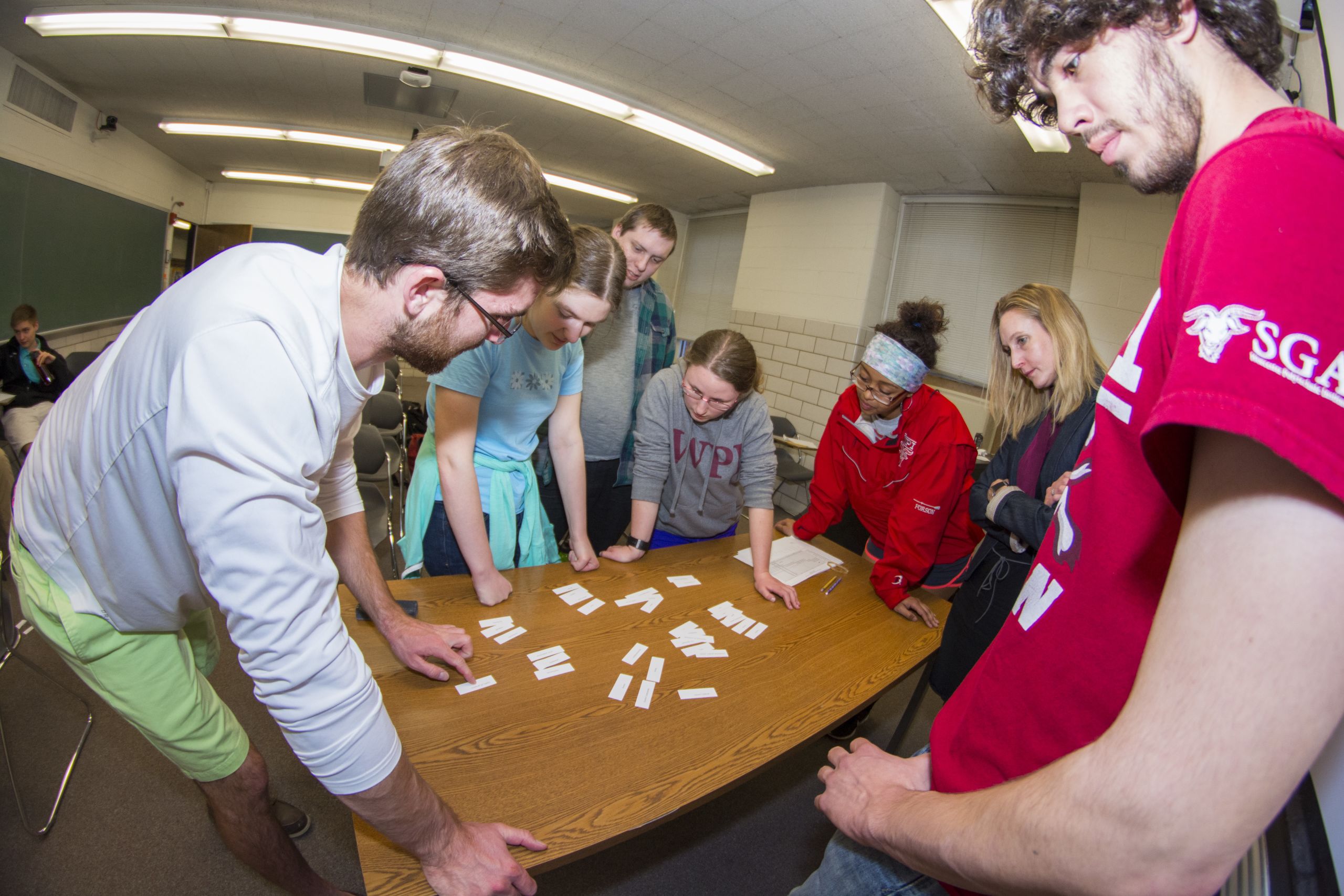
Throughout the first half of 2018, Plymouth State University and Texas A&M University were seeking fresh ways to engage their students more meaningfully. Both institutions would come to embrace the advantages offered by one educational approach—project-based learning—but for different reasons.
At Plymouth State, a 4,000-undergrad institution in New Hampshire, administrators were under the mandate of its president, Donald Birx, to grow opportunities for cluster-based learning within the university’s general education program. Courses-to-be would need to include an interdisciplinary approach, group-learning projects that extended beyond classroom walls, and a direct connection to the real world.
Meanwhile, feedback from students’ prospective employers motivated Texas A&M, with an undergrad population of around 54,000, to better equip its graduates. Though engineering and other majors had long featured some project-centered courses, the university decided it needed to expand the number of these. By offering team learning opportunities to students in a host of majors, it hoped to address employer concerns about graduates who sometimes lack key skill sets needed on the job, including adaptability, collaboration, communication, and critical thinking.
A Transformational Approach

"Institutions are realizing that they have to do something markedly different to prepare students for what they'll be facing in the world."
For help in transforming their approaches, both universities turned to the Center for Project-Based Learning (CPBL) at Worcester Polytechnic Institute (WPI). The Center taps the 50 years of experience WPI has developed as a pioneer in project-based learning that focuses on students working collaboratively to solve real-world, multi-faceted problems. Since it opened in 2016, the Center has worked with more than 135 higher-ed institutions serving more than two million students in 16 countries, to help them advance project-based learning initiatives on their campuses.
The CPBL offers both its annual Institute on Project-Based Learning in Worcester and workshops at colleges during the academic year to help them with course construction, hands-on faculty development, and best practices surrounding getting students to work and learn together.
“Institutions are realizing that they have to do something markedly different to prepare students for what they’ll be facing in the world,” says Richard Vaz, CPBL co-director. “Many are searching for ways to distinguish themselves from other colleges. And, more often, that includes project-based learning.”
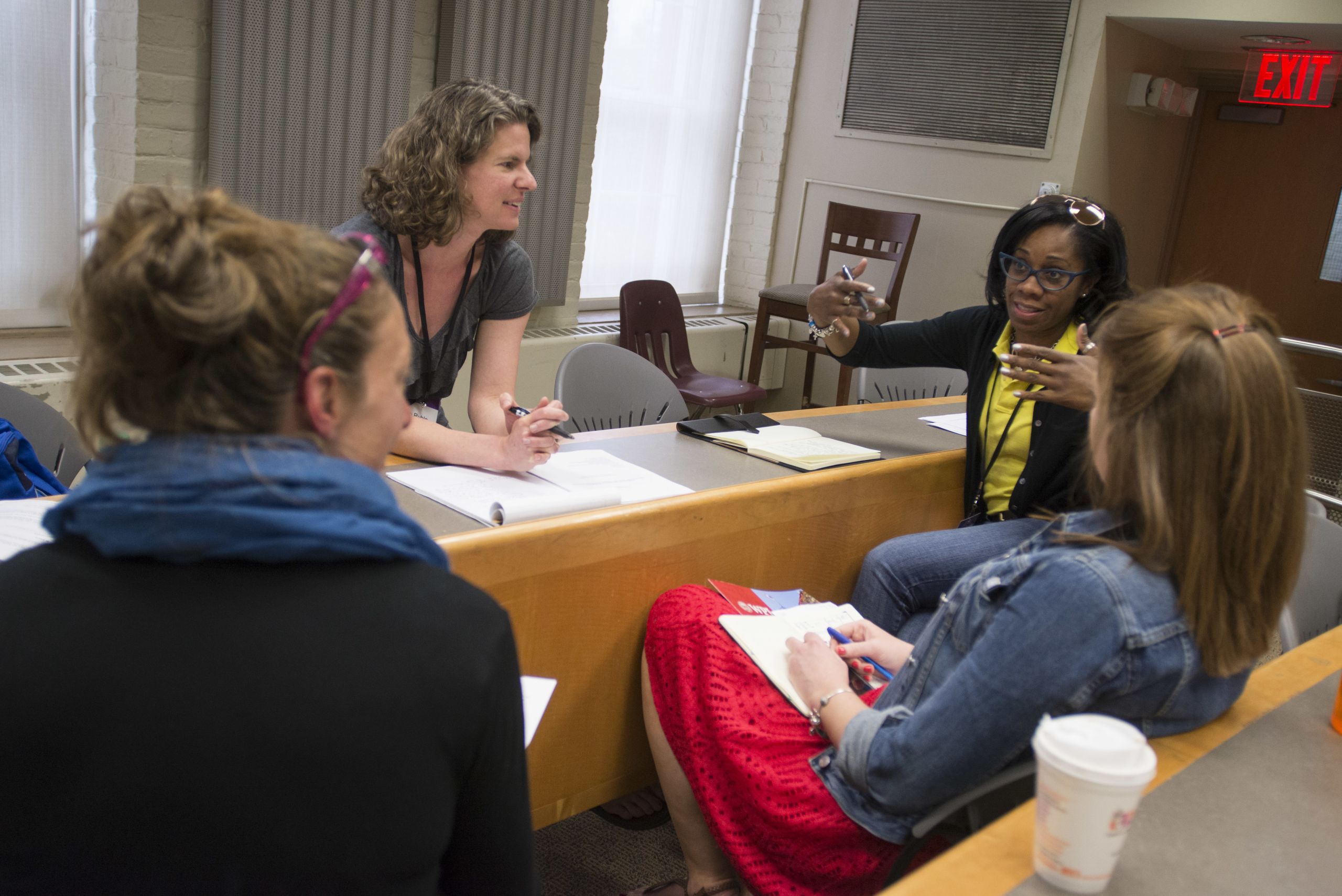
Participants at WPI’s Institute on Project-Based Learning discuss their PBL plans.
Participants at WPI’s Institute on Project-Based Learning discuss their PBL plans.
Plymouth State Students Tackle 'Wicked Problems'
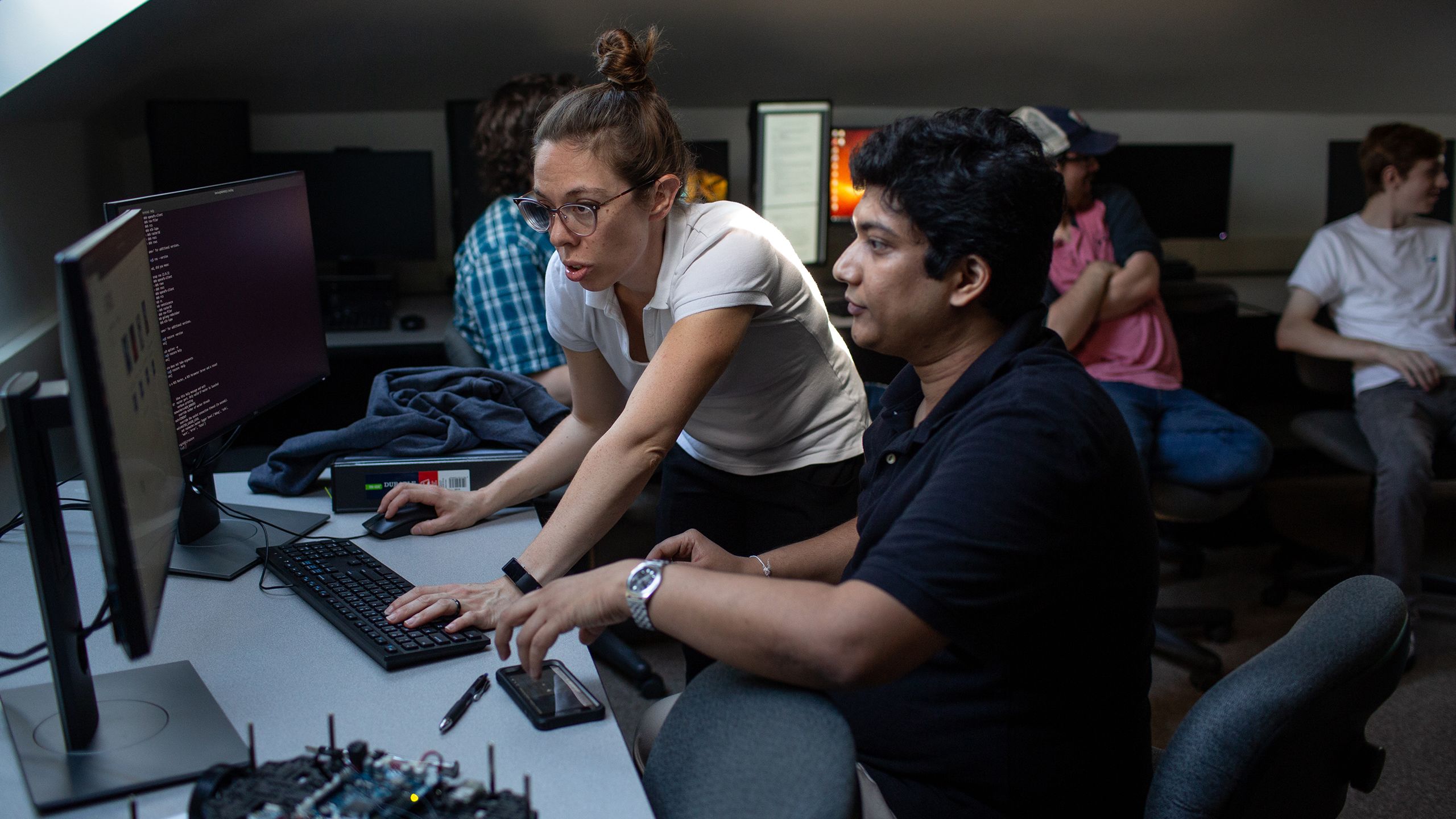
"We want our students to learn how to think deeply about their educational goals, as well as take the reins of their own education."
In the summer of 2018, Vaz and another CPBL leader delivered a two-day workshop to 45 Plymouth State faculty members on developing project-based courses that would engage students. Particular emphasis was placed on developing a sense of community in classrooms, figuring out how to overcome the many kinds of difficulties students can experience while working in teams, and discussing the most accurate ways to measure their success.
In previous years, Plymouth State had offered a handful of classes that brought students from a variety of disciplines working together to solve problems. But the university saw more potential to make its general education curriculum a focal point for such courses.
Besides creating project-focused classes that fit its leadership’s mandate for more cluster-based learning opportunities, Plymouth State also emphasized their value to students, particularly its first-year students, as they came to direct their own learning experiences.
“We want our students to learn how to think deeply about their educational goals, as well as take the reins of their own education,” says Cathie LeBlanc, coordinator of general education at Plymouth State. “We market ourselves this way.”
LeBlanc, also a communication and media studies faculty member who teaches a game design course, says she worried that her students often weren’t learning skills that are readily translatable to the world of work. As she explored project-based learning, she came to realize that challenging students from different disciplines to work together on real-world problems could help them gain more meaningful experiences. “It’s something they can take with them on job interviews,” she says.
Following their work with WPI's CPBL, Plymouth State’s curriculum now features 50 sections of courses that include project-based learning, including a course for first-year students called “Tackling a Wicked Problem.” In this course, students from various majors form teams to discuss complex and intractable social problems, such as climate change or homelessness. “We challenge them with problems that have multiple dimensions, issues, and possible solutions,” says LeBlanc.
Faculty members have taken to the new course design. More than 70 educators participated in development learning opportunities in the summer of 2019 to help them integrate the approach into their classrooms.
Plymouth State’s transition hasn’t necessarily been easy. “We’ve had challenges shoehorning these new kinds of courses into an existing general education program,” LeBlanc says. Even though many faculty members have signed on, others have been slow to take to the idea. And last year, a living/learning community based on the project-centered courses that students were taking together proved to be unworkable.
But overall the effort has been well worth it. “If we can get students at least two of these experiences, their engagement increases and they can articulate their educational goals much more clearly,” LeBlanc says. A requirement that students show their work during a poster symposium each semester has also helped them convey their understanding of what they can get out of their college years, she adds.
"It reiterated the idea that whatever I put into my education was what I was going to get out of it."
The project-based courses have quickly become favorites of students—some of whom have been put to the service of Plymouth State.
One class cast a critical eye on the university’s online information for prospective students. In groups of five, students dissected the Plymouth State website to locate one piece of some vital information (such as a college application) and found it required far too many clicks. Ultimately, many of the class’s findings led to changes in the university’s online admissions and marketing materials.
Alison Louie, a senior communications and media studies major, says that the course offered more than a feeling that the students were making a difference on campus. “It reiterated the idea that whatever I put into my education was what I was going to get out of it,” she says. “It forced me to hold myself to a higher standard, and made me realize that I could help other students achieve more as well.”
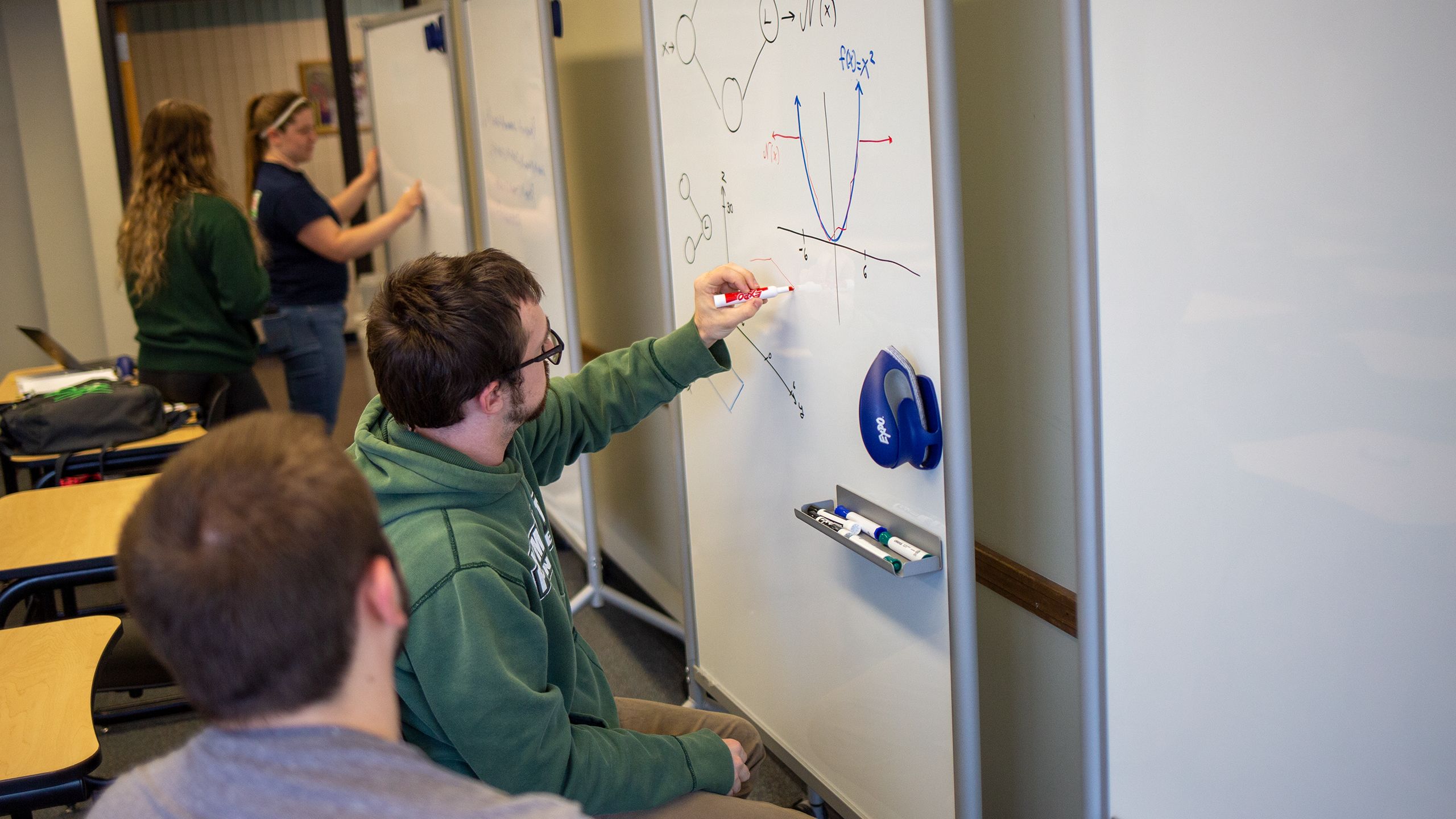
Plymouth State’s technology programs, including a new Robotics major, feature project-based learning.
Plymouth State’s technology programs, including a new Robotics major, feature project-based learning.
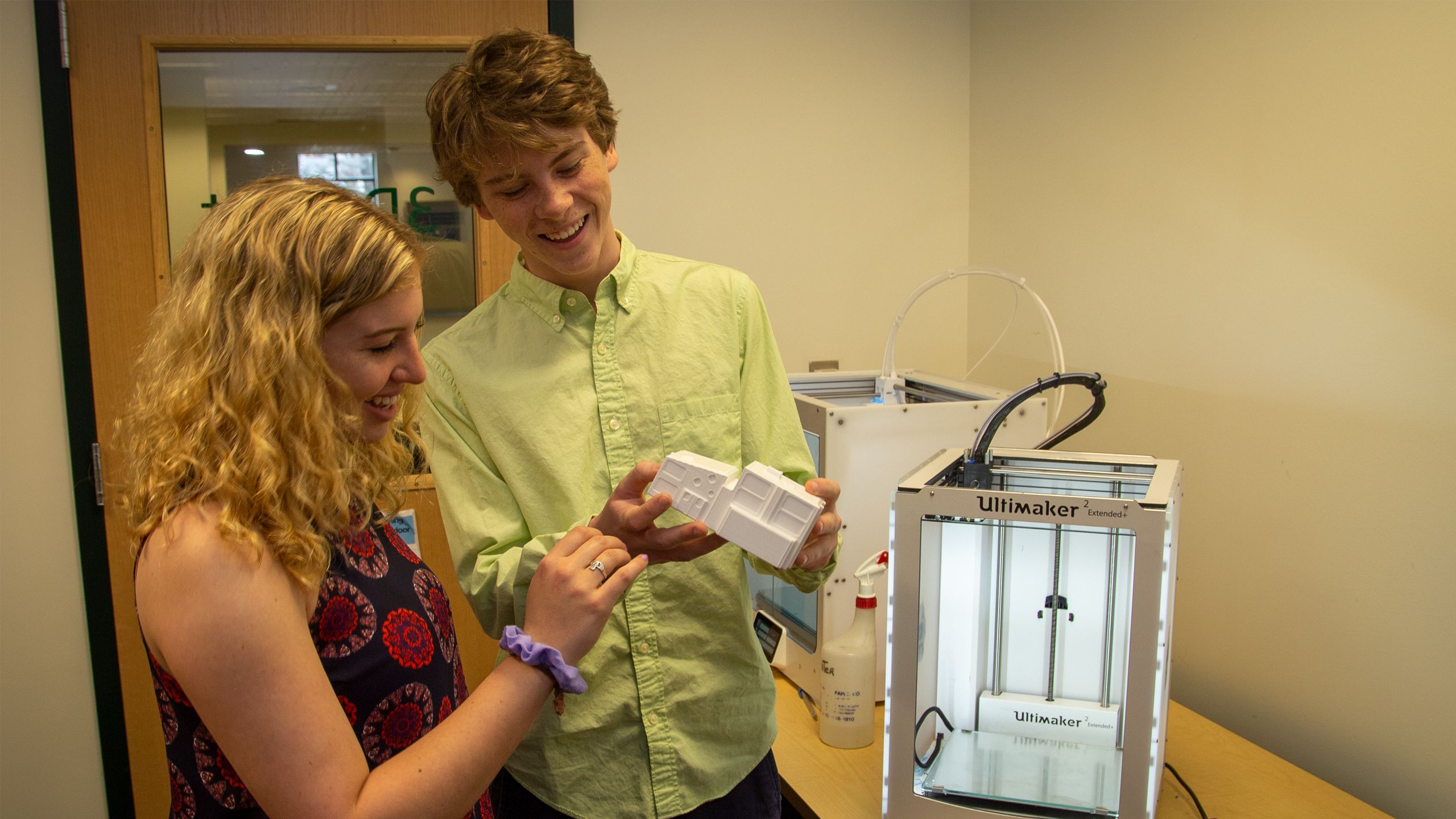
“Showing your work” increases Plymouth State students’ engagement and understanding.
“Showing your work” increases Plymouth State students’ engagement and understanding.
Texas A&M Pushes for Innovation in Teaching
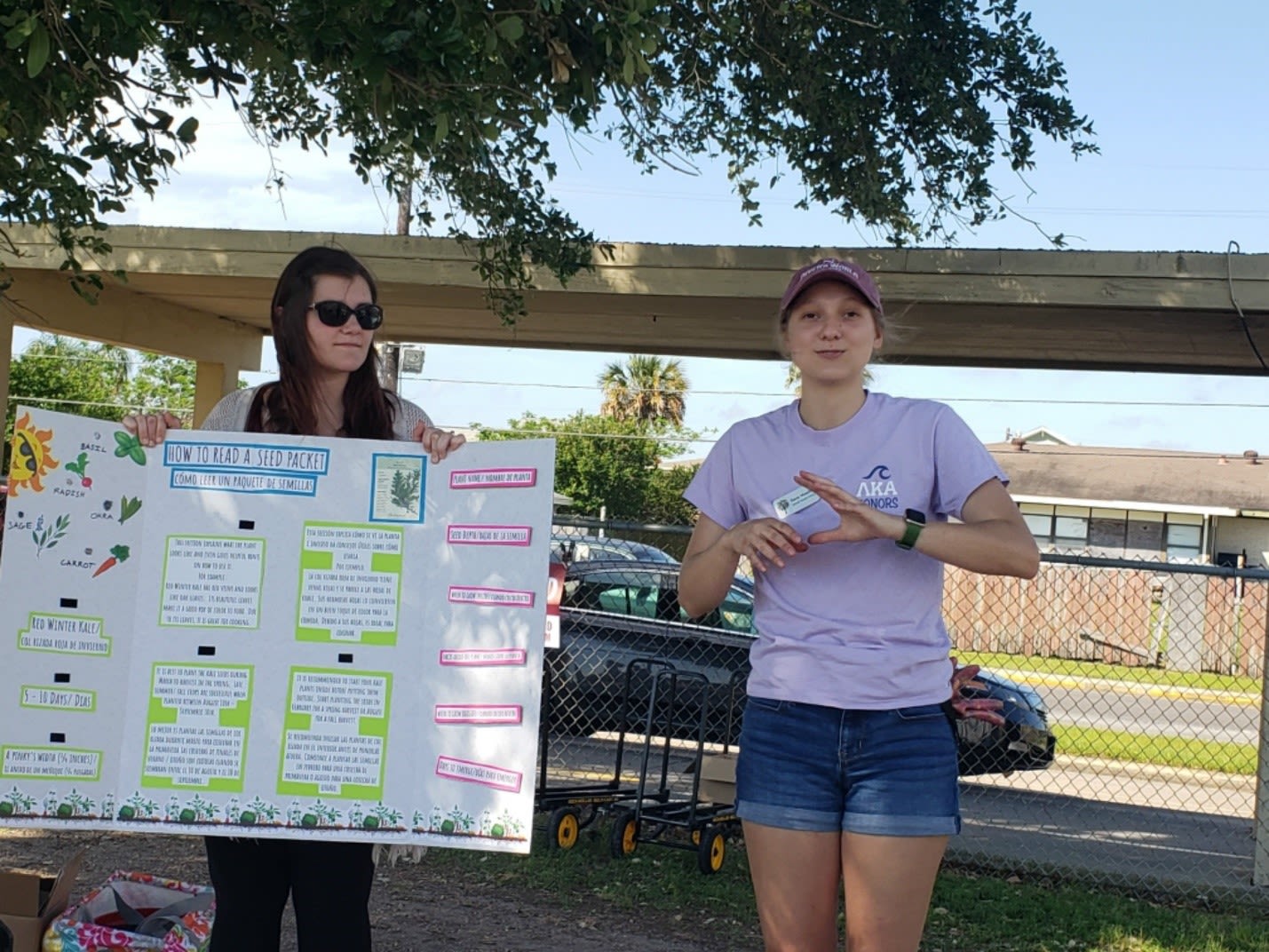
"I really feel like I'm stronger in all phases of what I do because of project-based courses, and more ready to apply my skills out in the world."
Meanwhile, in August 2018, officials at Texas A&M worked on a “reset" that would involve incorporating more experiential learning across its curriculum. Eager to help more students develop broader skill sets both in their first-year core classes and later as upper class students, the university embarked on a search for expertise on project-based learning.
“We’ve been trying to implement more high-impact practices, which includes project-based learning,” says Debra Fowler, director of Texas A&M’s Center for Teaching Excellence. “We’re not new to project-based learning, but we wanted all disciplines and faculty to have the opportunity to engage with it at a deeper level. Bringing WPI to Texas A&M to deliver a workshop allowed us to widen the scope of this high-impact practice.”
Response to a request for proposals from faculty for instruction from WPI's CPBL was extremely encouraging, Fowler says. Eventually, 27 attended the Center’s workshop. In addition to providing project-based learning fundamentals, CPBL instructors also dedicated time for faculty to air their concerns and discuss fixes for some, such as time management, developing a syllabus and curriculum plan for how best to ensure solid team dynamics among students, and how to focus on best practices in team learning.
Texas A&M has since instilled project-based principles in a variety of courses—from two-semester capstones to first-year courses with shorter projects. The CPBL remains a valuable resource, Fowler says, offering advice to faculty before, during, and after implementation. Texas A&M supplements the Center’s input by incorporating other evidence-based practices cited by the Association of American Colleges & Universities and others into its project-based learning courses.
"Simply put, it's the right thing to do. We're preparing students to deal with the global problems they'll be facing."
Texas A&M now offers in-house workshops for faculty interested in applying project-based learning principles to their courses.
“The workshop is offered for faculty who are curious and wish to update their course, and for those who might want to try something different with the project-based class they’re teaching,” Fowler says. “It also gives faculty a chance to tell their project-based learning story. They can share what they’re doing in their classrooms.”
For Joshua McComb, a senior construction science major at Texas A&M, a project-based capstone course helped him develop job skills in a low-risk environment. As his class worked on plans to renovate a campus building, McComb focused on joining teams that could help him in areas where his construction knowledge was weak. What’s more, his phone interviewing and data mining skills, along with his knowledge of the business improved markedly.
“The classes really give you an idea of what a business environment looks and feels like,” he adds. “I really feel like I’m stronger in all phases of what I do because of project-based courses, and more ready to apply my skills out in the world.”
As colleges explore ways to become more valuable to their students, they have begun to focus more on outcomes, such as how ready students are to join the workforce. Project-based learning can provide them with a method.
“Simply put, it’s the right thing to do,” says Fowler. “We’re preparing students to deal with the global problems they’ll be facing. To work effectively today, you can’t be siloed. You need to be adaptable and able to work with others. If we can teach them these skills, it will set them up to be more successful in their careers.”
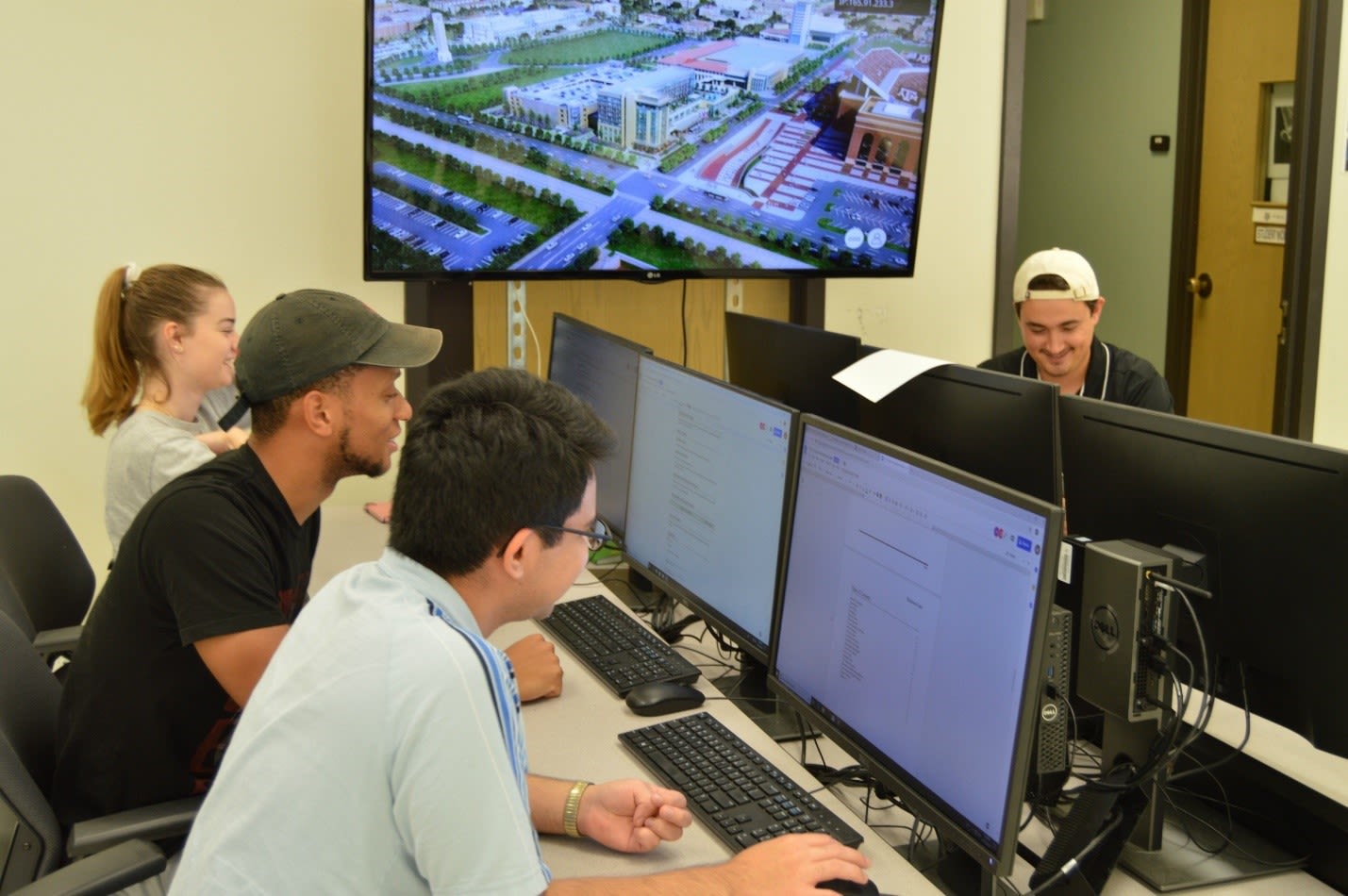
Students use cloud-based collaboration tools like Google Docs, Asana, and Slack to communicate and coordinate work.
Students use cloud-based collaboration tools like Google Docs, Asana, and Slack to communicate and coordinate work.
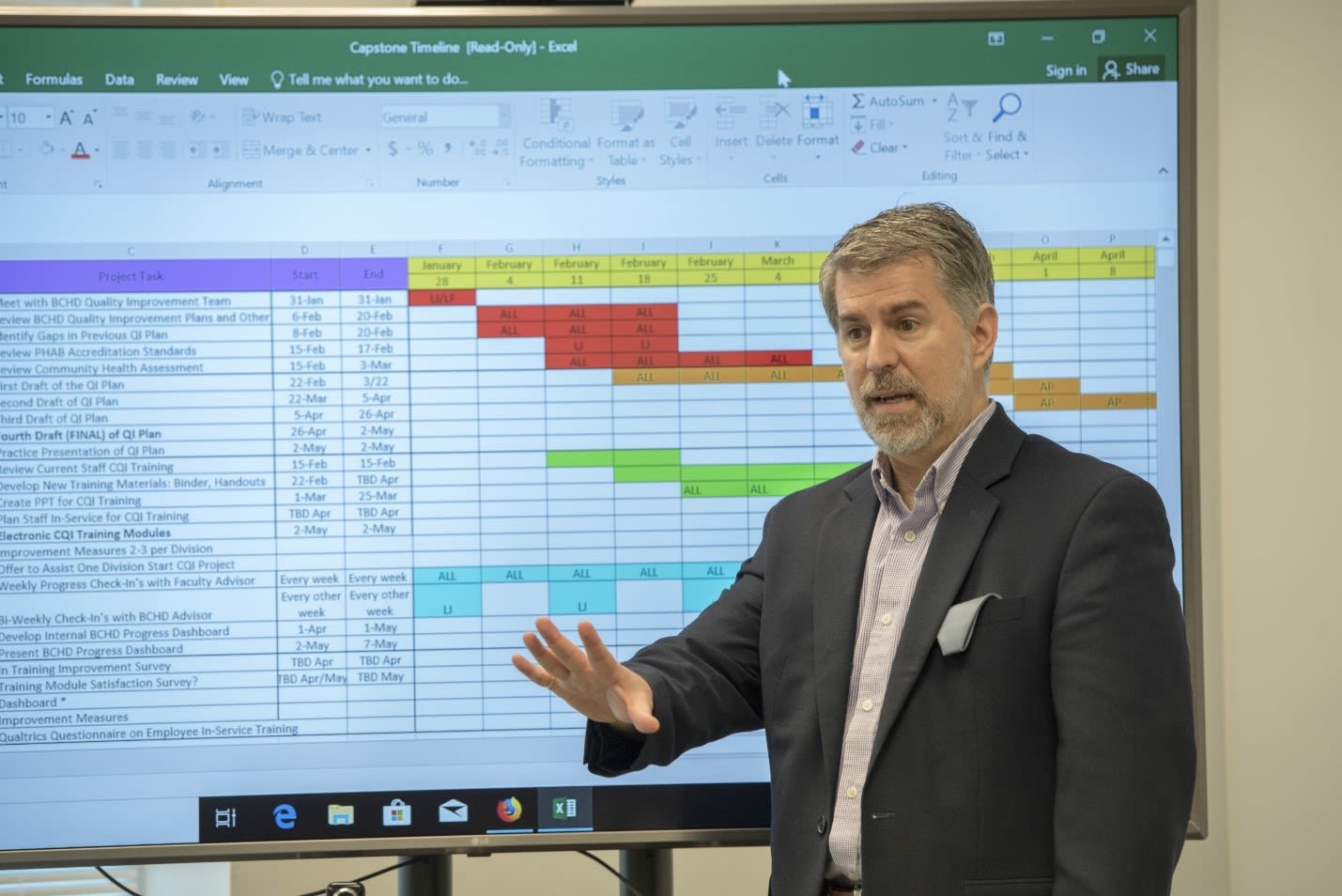
Professor Jeff Hatala assists students in assessing the functionality, feasibility and completeness of the project plan for the Capstone client, which involved developing a quality improvement plan and activities relative to the organizations’ accreditation requirements and other needs.
Professor Jeff Hatala assists students assess the functionality, feasibility and completeness of the project plan for the Capstone client, which involved developing a quality improvement plan and activities relative to the organizations’ accreditation requirements and other needs.


